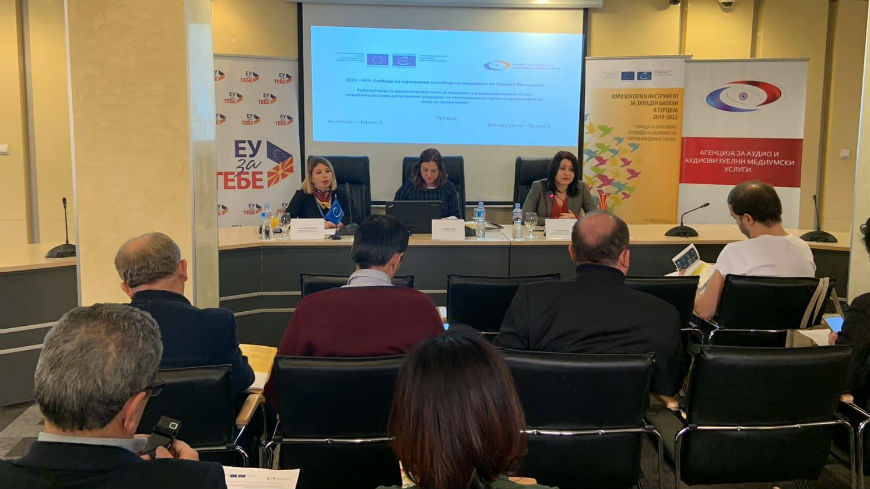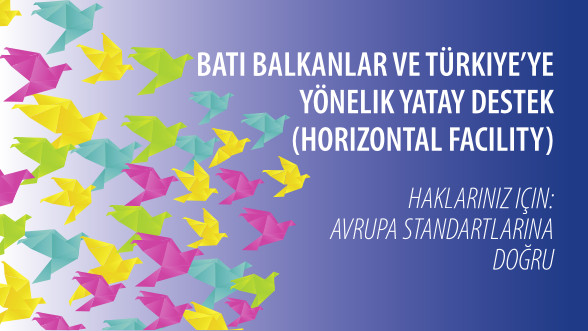The general prevalence of disabled people among the general population in the world ranges from 0.2% to 20.9%, in practice it is accepted, as unofficial statistics, that 10% of the total population are people with some kind of disability. Many international organisations are addressing the estimates of the people living with disabilities. If we use their indicators, it means that out of 2,065,769 inhabitants in Macedonia, according to the population assessment conducted on 31.12.2013 by the State Statistical Office, the number of persons with disabilities in the Republic of North Macedonia ranges between 4,000-400,000.
Access to media for people with sensory disabilities was the topic discussed between the representatives of the media regulatory agency, the broadcasters and the international expert engaged by the Council of Europe, during the workshop held on January 29, 2020 in Skopje. Based on a provided draft, the participants exchanged on the finalisation of a self-regulatory document for providing access to media for people with sensory disabilities.
Ms Deirdre Kevin, Council of Europe expert in the field of media law and media regulation, contributed to the debate on the rights and obligations of states, media actors and other stakeholders related to Council of Europe standards and practices, as well as other international standards, looking at the European comparative practice with regard to accessibility of audio-visual media services and providing an overview of the role of the regulator regarding the needs of people with sensory disabilities in being provided access to the media.
Additionally, the challenges and opportunities regarding financial issues and technological developments in Europe were also presented and discussed.
This document, once created and implemented by the broadcasters, will contribute to better access to media for people with sensory disability, by improving their cultural, social and political life. Every human has the right to freedom of expression and to opinions and to receive and impart information and ideas without interference by public authority and regardless of frontiers. People with sensory disabilities will be better informed and independent in the process of informing themselves. This document will contribute to the process of improvement of the rights of the people with disabilities alongside with the newly adopted Declaration on the right to political participation of citizens with disabilities.
This was the first workshop with the Agency for Audio and Audio-visual Media Services under the Action “Freedom of expression and freedom of the media in North Macedonia” (JUFREX2). This workshop is the first in set of activities foreseen to be organised together by the Council of Europe and the Agency in a period of three years for the purpose of creating an enabling environment for freedom of expression and freedom of the media.
This Action is part of the “Horizontal Facility for the Western Balkans and Turkey II”, a joint EU/CoE programme implemented by the Council of Europe, which aims at assisting Beneficiaries in the Western Balkans region and Turkey to comply with the Council of Europe standards and European Union acquis in the framework of the enlargement process, where relevant.


